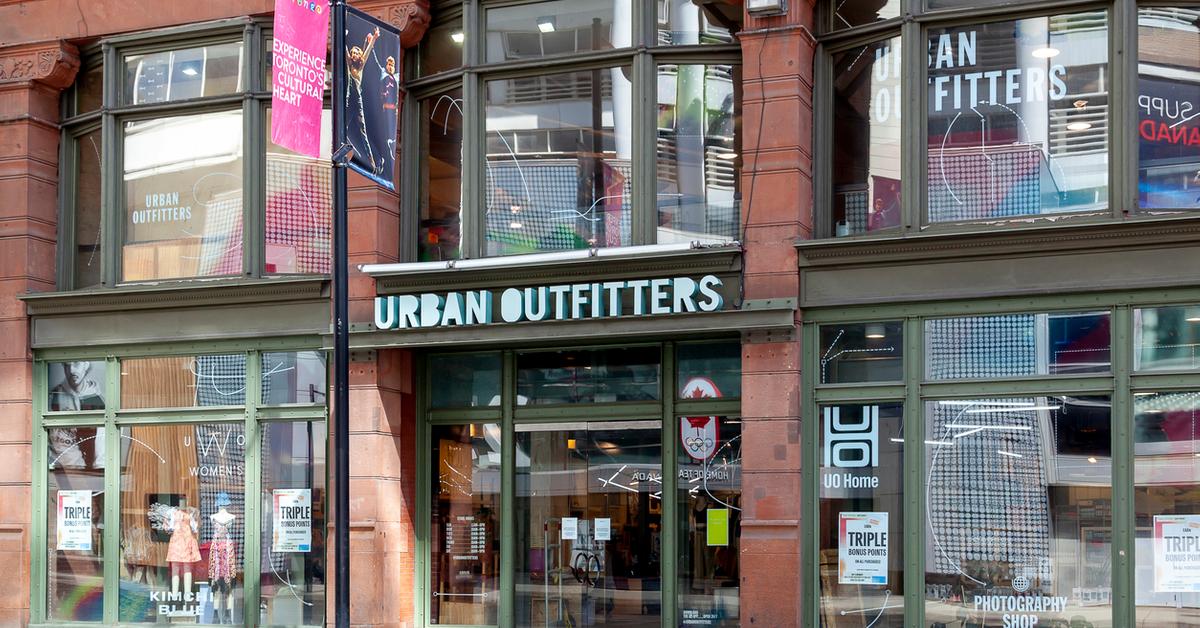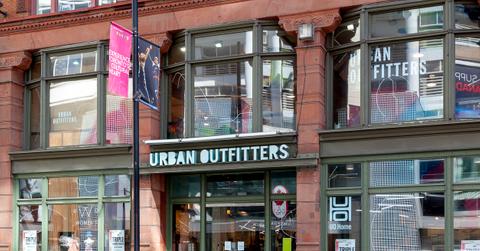Fashion
Is Urban Outfitters Considered Fast Fashion? Here’s What We Know About the Retailer

Urban Outfitters has much work to do to be considered a sustainable and ethical company.

In the vicious battle for brick-and-mortar and online fashion retail supremacy, many of the biggest names on the market are guilty of the damaging practices associated with fast fashion. From Shein to Temu to other popular, affordable fashion brands, planet-destroying practices and labor rights violations abound.
Might Urban Outfitters, another fashion retailer, be a suitable alternative?
Article continues below advertisement

Article continues below advertisement
Is Urban Outfitters fast fashion?
By any measure, Urban Outfitters’ trendy inspired looks, damaging environmental practices, and other factors make it a sure bet as an offending fast fashion retailer.
According to the ethical and sustainable fashion rating app Good On You, Urban Outfitters is rated “not good enough” (i.e., their second-worst rating) due to several factors, including an unsustainable model that features “quickly changing trends and regular new styles.”
Let’s explore their assessment more in-depth: Urban Outfitters ranks poorly in Good on You’s “Planet” rating, “People” rating, and “Animals” rating.
This is due in part to the harmful chemicals used in their manufacturing methods; the poor protections for their employees and the workers within the supply chain; and their use of leather and wool, to name a few.
Article continues below advertisement
Additionally, Urban Outfitters remains stubbornly reliant on an unsustainable fast fashion model and has taken no tangible steps to reduce its carbon footprint. Their labor rights violations are well-documented, and there is no assurance of the welfare of the animals within their supply chain.
In another damning move, Vestiaire Collective added Urban Outfitters to the list of banned brands from whom they do not accept items, labeling them among fast fashion’s biggest culprits.

Article continues below advertisement
Finally, according to the fair wage advocacy and environmental justice nonprofit Remake, former employees have noted Urban Outfitters’ practice of destroying unsold products among the parent company’s other damaging practices and disregard for the environment.
Article continues below advertisement
Is Free People fast fashion?
Free People is unfortunately a fast fashion retailer that does not deserve your money. The company is just another business in a long line of fast fashion retailers suffering from hapless leadership.
Article continues below advertisement
Free People has also continued the fashion appropriation and trend of poor decisions made by Urban Outfitters. According to TODAY, Free People featured traditional Native American accessories like feather headdresses under its “Festival Outfit Ideas” section on its website in 2016.
Because parent company URBN owns Urban Outfitters, Free People, and Anthropologie, it appears the carelessness for the environment, the animals, and the people is a systemic issue.
“Erin explained that her friends who worked previously at URBN corporate offices have been let go with NDAs for speaking out internally about the company’s unsustainable practices,” according to Remake.
Article continues below advertisement
Former employee confessions speak to the company’s culture of trying to conceal its damaging practices and toxic culture under the veil of greenwashing and other slimy marketing ploys.

Article continues below advertisement
Is Anthropologie fast fashion?
Anthropologie is both a fast fashion business and a member of the disturbing URBN family of retailers.
A PETA investigation found heartwrenching incidences of alpaca abuse on the world’s largest such farm, which provides alpaca wool to both Anthropologie and Free People.
“Workers…hit, kicked, tied down, and mutilated alpacas for their wool,” according to the PETA investigation. “Pregnant alpacas were slammed onto tables, causing many of them to cry out and vomit in fear.”
From any perspective, supporting soulless fast fashion retailers like Urban Outfitters, Free People, and Anthropologie is something we all should do without.







:max_bytes(150000):strip_icc()/roundup-writereditor-loved-deals-tout-f5de51f85de145b2b1eb99cdb7b6cb84.jpg)


